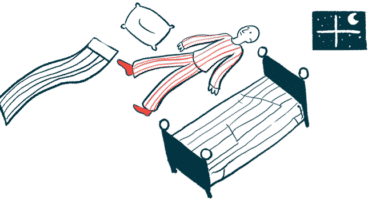When Life Gives You Lactose Intolerance, Make Lactaid


With all due gravity, I informed the group chat about my latest hypothesis. “I think I might be lactose intolerant.”
“NO,” said one friend.
“NOOOOO,” said another.
I explained that I’d been experiencing some strange symptoms around dinnertime. Initially, I assumed it had something to do with Evrysdi (risdiplam), as gastrointestinal issues are a common side effect. But I would’ve expected the symptoms to appear when I first started taking Evrysdi in 2021. These were relatively new, and usually started after dinner (and before I took my daily dose of the medication).
For the first few weeks, I didn’t think much of it. Maybe I’d eaten too much. Maybe an air bubble had inadvertently worked its way into my G-tube. But the symptoms persisted.
I’m a self-professed hypochondriac, so naturally my illness anxiety started to kick in. Maybe something was wrong with me. And even if there wasn’t, life is too short to experience frequent bouts of extreme discomfort that leave me feeling like a beached whale.
Then I remembered that my caregiver’s youngest is lactose intolerant.
I took to Google. “Can you become allergic to dairy later in life?” The answer seemed to be no. But further research suggested I was, in fact, lactose intolerant. Symptoms occur anywhere from 30 minutes to two hours after ingesting dairy and are often characterized by excessive bloating.
You have to understand that I eat a lot of dairy. Like, a lot. I can’t think of a single recipe in our family’s meal rotation that doesn’t include dairy. I love cheese so much that I literally have a heart-shaped enamel pin on my backpack that says “cheese.” Every year for Christmas my mom buys me a bunch of artisan cheese from a creamery I fell in love with while vacationing in Vermont.
So there was a lot riding on the whole “potentially lactose intolerant” thing. On one hand, I was relieved to have some answers; on the other, I was wondering what kind of dietary changes I might have to make. As a friend of mine said, “I’ve seen the greatest minds of our generation cut down by lactose intolerance.”
I told my dad in no uncertain terms that I was probably lactose intolerant. I expected him to jump for joy, amazed by my frankly stupendous problem-solving skills. Mostly, he was worried about what the hell he was going to make for dinner if dairy was literally and metaphorically off the table.
I messaged my primary care provider and asked if there was a test for lactose intolerance. Thankfully, there was. I scheduled an appointment and settled in for a week and a half of waiting.
Of course, I could be wrong. Maybe I’m not lactose intolerant! Maybe it’s all a coincidence, and my symptoms are actually pointing toward a different health condition. Only time will tell. But I’m grateful to have answers, even if they’re not necessarily accurate. It’s a place to start, and sometimes — most times — that’s enough.
Thanks for reading! You can follow me on Twitter and Instagram, subscribe to my newsletter, or support me on Substack.
Note: SMA News Today is strictly a news and information website about the disease. It does not provide medical advice, diagnosis, or treatment. This content is not intended to be a substitute for professional medical advice, diagnosis, or treatment. Always seek the advice of your physician or other qualified health provider with any questions you may have regarding a medical condition. Never disregard professional medical advice or delay in seeking it because of something you have read on this website. The opinions expressed in this column are not those of SMA News Today or its parent company, BioNews, and are intended to spark discussion about issues pertaining to spinal muscular atrophy.
The post When Life Gives You Lactose Intolerance, Make Lactaid appeared first on SMA News Today.




